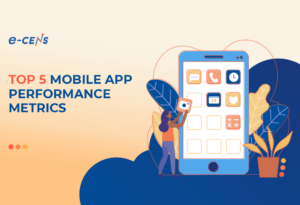Imagine driving a plane, like a Boeing 747, with hundreds of passengers onboard, do you feel the pressure as a pilot?
Okay, now I want you to imagine driving that Boeing 747 with blindfolds!
Suddenly, everything changes, right? You don’t know where you’re going, you can’t see dashboards and determine if you will crash.
That’s exactly what mobile marketing feels like without a mobile measurement platform.
As a marketer or an executive in a company with a mobile app, you can’t afford to fly blind.
So, what’s an MMP? How do you use one, and most importantly, how do you choose one?
That’s what this blog is all about. Now, let’s take that blindfold off and start preparing to take off.
Table of Contents
What’s a Mobile Measurement Partner?

A mobile measurement platform, or MMP for short, is a 3rd party tool that measures and attributes marketing campaigns across advertising networks.
It helps marketers like you identify which ad campaigns drive results like app installs and in-app events.
But you might hear another similar term when searching for MMPs, that’s MLPs or marketing linking platforms. These platforms allow you to create links that direct users towards a specific screen or content within your app, even if the app isn’t installed (in that case, it directs them to the app store to download it).
How Does a Mobile Measurement Partner Work?
The short answer is that it works by integrating the software development kits or SDKs into your app to capture and analyze your users’ interaction with it, app installs, and other relevant events.
The long answer is it works by integrating the software development kits or SDKs for short into your app to capture and analyze your users’ interaction with your app, app installs, -app purchases, and ad clicks.
The platform then matches the data it collected with corresponding ad campaign information to attribute the app install or user activity to a specific ad source, such as a particular ad network or campaign.
This helps marketers better understand which ad campaigns get the results they’re after, thus replicating the winning formula next time.
Also, MMPs usually have advanced algorithms and techniques that filter out fraudulent app installs and activity, which ensures that the data on which marketers base their decisions are accurate and reliable.
Additionally, they provide a robust reporting dashboard that makes it easy for app marketers to track key performance indicators (KPIs), measure the success of their campaigns, and optimize their advertising strategies based on the insights provided by the MMP.
In general, MMPs help app marketers track and analyze their mobile advertising campaigns, which helps them improve performance and achieve their marketing goals through data-driven decisions.
How Do MLP and MMP Work Together?
There are several key areas where MLPs and MMPs working together give a better experience for your users and more accurate analytics for you as a marketer.
- Deep Link Attribution: MLPs can generate deep links that include attribution parameters provided by MMPs. When a user clicks on these deep links and installs the app, the MMP can attribute the install to the specific marketing campaign or source that generated the deep link. This allows marketers to track the effectiveness of their campaigns and optimize their advertising strategies.
- Seamless User Experience: MLPs enable deep linking functionality, directing users to specific content or actions within an app. When a user interacts with an ad served by an MMP, the MMP can provide a deep link that takes the user directly to the desired section or feature within the app. This seamless transition improves user experience and increases engagement.
- User Journey Tracking: By integrating with an MMP, MLPs can track the entire user journey from the initial click on an ad to app installation and subsequent in-app actions. This comprehensive tracking helps marketers understand the effectiveness of their campaigns, identify bottlenecks or areas for improvement in the user journey, and optimize their marketing efforts accordingly.
- Measurement and Analytics: MMPs provide measurement and analytics solutions for mobile app advertising campaigns. By integrating with an MMP, MLPs can pass relevant data such as clicks, installs, and in-app events to the MMP’s analytics platform. This enables marketers to gain insights into user behavior, measure key performance indicators (KPIs), and make data-driven decisions to optimize their marketing strategies.
Overall, MLPs and MMPs collaborate to enable deep linking, attribution, seamless user experience, tracking of user journeys, and measurement and analytics for mobile app marketing campaigns. They help marketers enhance campaign effectiveness, improve user engagement, and drive better results.
What Are The 6 Benefits of Using a Mobile Measurement Partner?
Using a Mobile Measurement Partner (MMP) offers app developers and marketers several benefits. Here are some key benefits:
1 – Attribution and Campaign Tracking
MMPs enable accurate attribution of app installs and user activities to specific ad campaigns or sources. This helps app developers and marketers understand which marketing efforts drive results, allowing them to allocate resources effectively and optimize their campaigns.
2 – User Acquisition Insights
MMPs provide detailed insights into user acquisition, allowing app developers to understand their app users’ demographics, behaviors, and sources. This information helps refine targeting strategies, identify high-value user segments, and maximize return on investment (ROI).
3 – Fraud Detection and Prevention
MMPs employ advanced detection techniques to identify and filter out fraudulent or invalid app installs and activities. This protects app developers from wasting resources on fraudulent traffic and ensures that the data analyzed is reliable and accurate.
4 – In-depth Analytics
MMPs offer comprehensive analytics and reporting dashboards that provide valuable insights into app performance, user engagement, in-app purchases, and other vital metrics. These insights help measure marketing campaigns’ success, identify improvement areas, and make data-driven decisions to optimize app performance.
5 – Integration with Ad Networks and Tools
MMPs integrate with various ad networks, attribution providers, and other third-party tools, enabling seamless data sharing and campaign management. This integration simplifies managing multiple ad campaigns, tracking performance across channels, and streamlining workflows.
6 – Privacy Compliance
MMPs often have built-in mechanisms to ensure compliance with privacy regulations such as GDPR and CCPA. They handle user data securely, provide transparency in data collection practices, and offer options for users to control their data preferences.
6 Reasons on Why You Need a Mobile Measurement Partner?
The short answer is that a Mobile Measurement Partner (MMP) provides benefits such as optimizing ad spend and enhancing user engagement through deep linking capabilities, enabling marketers to track and analyze campaign performance effectively.
MMPs offer valuable insights and tools for data-driven decision-making, resulting in improved marketing strategies and better campaign outcomes.
The long answer:
1 – Channel Attribution
Channel attribution is the process of determining which marketing channels or touchpoints have contributed to a desired outcome, such as a sale or conversion.
It is important because it helps businesses understand the effectiveness of their marketing efforts and allocate resources accordingly.
By accurately attributing the impact of each channel, businesses can make informed decisions about their marketing strategies, optimize their budget allocation, and maximize their return on investment.
2 – App Spoofing
MMPs offer deep linking capabilities, allowing marketers to create personalized and contextual user experiences. By directing users to specific sections or features within the app, MMPs improve user engagement and increase the likelihood of conversions.
3 – Seamless Cross-Device Tracking
App spoofing refers to the act of creating a fake or fraudulent version of a legitimate mobile application.
This malicious practice is typically done to deceive users into downloading and using the spoofed app, which may lead to various negative consequences.
App spoofing can be used for fraudulent activities such as stealing personal information, spreading malware, or conducting phishing attacks.
It is important for users to be cautious and only download apps from trusted sources, such as official app stores, to reduce the risk of falling victim to app spoofing.
4 – SKAN & ATT
SKAN stands for SKAdNetwork, which is an attribution framework introduced by Apple for iOS apps. SKAN aims to provide privacy-focused attribution for app install campaigns while limiting the amount of user data shared with advertisers. It allows advertisers to measure the effectiveness of their ad campaigns without directly identifying individual users.
ATT, on the other hand, stands for App Tracking Transparency, which is a privacy feature introduced by Apple in iOS 14.5. ATT requires apps to obtain user consent before tracking their activities across other apps and websites owned by different companies. This feature gives users more control over their privacy and restricts the collection and sharing of their personal data.
Both SKAN and ATT are part of Apple’s efforts to enhance user privacy and give users more transparency and control over their data. Advertisers and app developers need to adapt their strategies to comply with these changes and find alternative methods for effective advertising and attribution in the new privacy-focused landscape.
5 – Fraud Prevention
MMP fraud prevention is important because it helps protect businesses and consumers from financial losses, reputational damage, and other negative impacts caused by fraudulent activities.
By implementing effective fraud prevention measures, businesses can detect and prevent fraudulent transactions, safeguard customer data, and maintain trust and confidence in their operations.
6 – Data Integration and Customization
MMPs often provide options for data integration with other marketing tools and platforms, allowing marketers to customize their reporting and analytics workflows based on their specific needs. This flexibility helps streamline processes and enables comprehensive analysis across different data sources.
By leveraging an MMP, marketers can optimize ad spend, enhance user engagement, track users seamlessly across devices, perform cohort analysis, conduct A/B testing, and customize data integration. These benefits empower marketers to make informed decisions, improve campaign performance, and achieve their marketing objectives more effectively.
How to select the Right Mobile Measurement Partner for Your Business?
When selecting the right Mobile Measurement Partner (MMP) for your business, consider factors such as the MMP’s attribution capabilities, fraud detection methods, integration options with ad networks and tools, analytics and reporting features, customer support, pricing structure, and privacy compliance.
Evaluating these factors will help you choose an MMP that aligns with your business goals and provides the necessary tools and insights to optimize your mobile app marketing campaigns.
And to make sure you’ve got all that it takes to choose the right MMP platform, here are the factors to consider when selecting the right Mobile Measurement Partner (MMP) for your business, presented as a list:
- Attribution capabilities: Evaluate the MMP’s ability to accurately attribute app installs and user activities to specific ad campaigns or sources.
- Fraud detection methods: Look for an MMP that employs advanced fraud detection techniques to filter out fraudulent or invalid installs and activities.
- Integration options: Consider compatibility with popular ad networks, attribution providers, and third-party tools that you use for your mobile app marketing.
- Analytics and reporting features: Assess the availability of comprehensive analytics dashboards, cohort analysis, conversion tracking, and customizable reporting options.
- Customer support: Look for responsive customer support and assistance from the MMP.
- Pricing structure: Evaluate whether the pricing aligns with your budget and consider any additional fees or limitations associated with the services provided.
- Privacy compliance: Ensure the MMP complies with privacy regulations such as GDPR and CCPA, handling user data securely and providing transparency in data collection practices.
Examples of popular MMPs in the market include Adjust, AppsFlyer, Branch Metrics, Kochava, and Singular. Each MMP offers unique features and strengths, so it’s essential to evaluate them based on your business needs and requirements.
Conclusion
We hope now that you’re not feeling like you are driving the plane blindfolded, we know how it feels, and that’s why we wrote this blog.
We’ve written an e-book about mobile analytics that would further advance your knowledge in that regard. After checking this blog, you should check it out!
Our consultants are here to help you build the right data analytics framework for your needs: contact e-Cens today to learn more.




